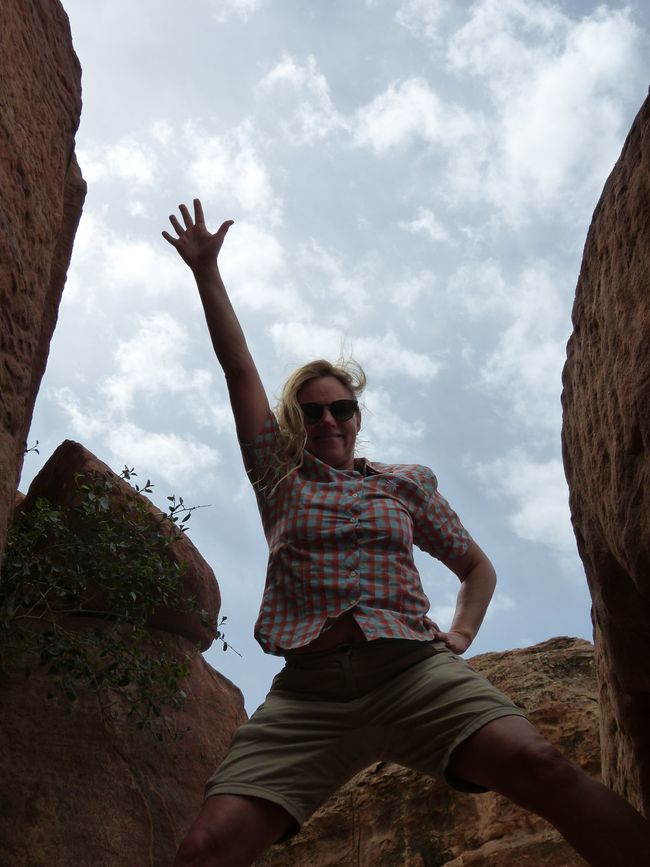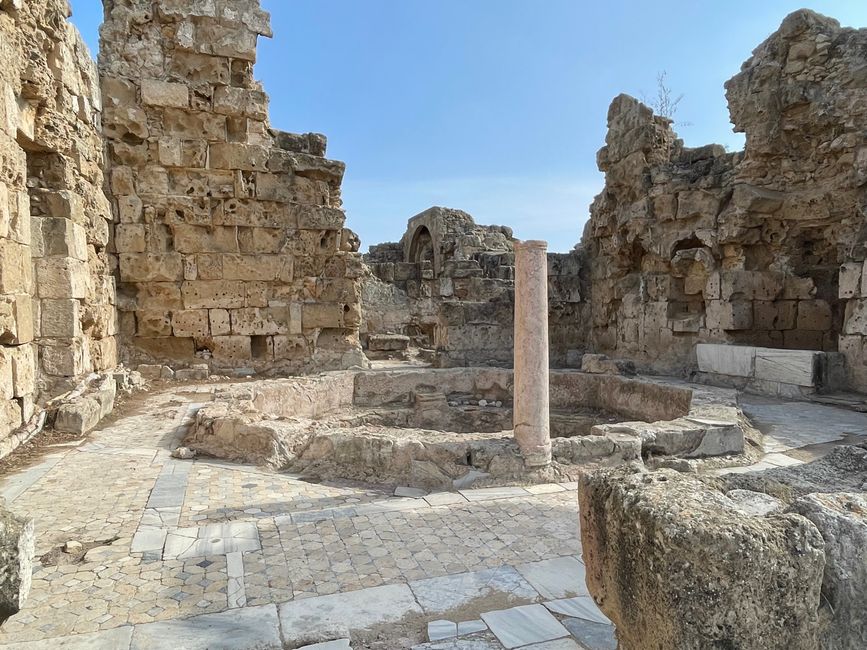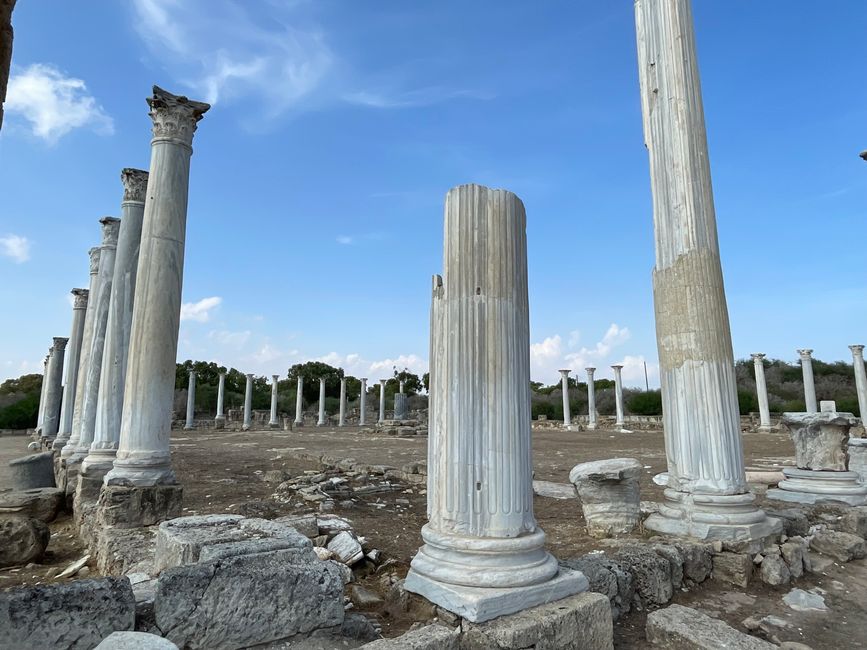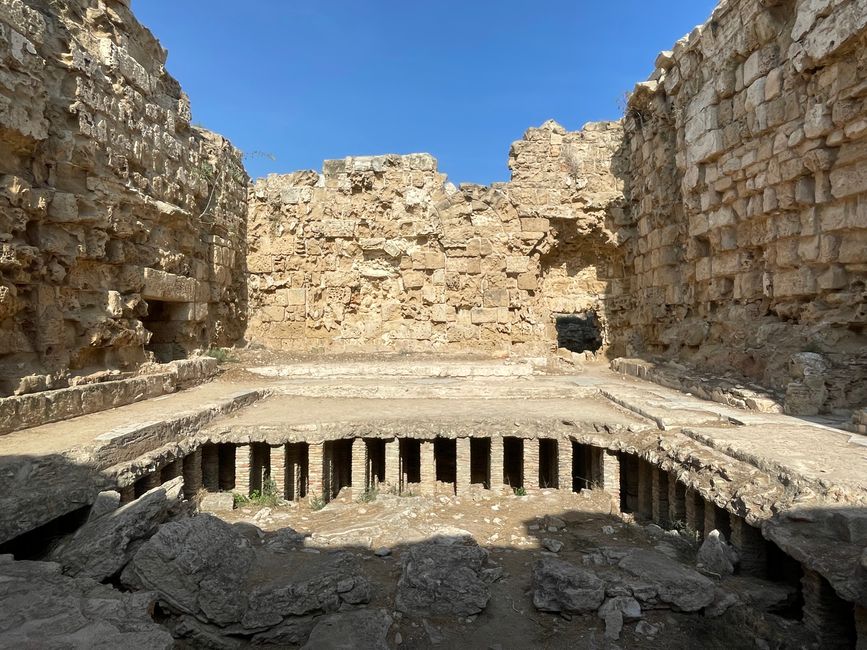Salamis - doing business in the toilet
Ebipụtara: 02.11.2023
Debanye aha na akwụkwọ akụkọ
Those in the 11th century B.C. The ancient city of Salamis, founded in the 8th century BC, played a role in the city from around the 8th century BC. BC played an important role in Cyprus. At times around 120,000 residents lived there. Destroyed and rebuilt several times by earthquakes, the era finally ended in 647 AD when Salamis was conquered by Arabs and razed to the ground.
Excavations began in 1890 and ended with the war in 1974. To date, only about 4% of the city has been excavated. These include, above all, the theater (smart-ass alert: it is only an amphitheater if it is round or oval; semicircular facilities are called theaters.) and the high school (originally not a school, but a sports facility. The term high school is derived from the Greek word gymnos - naked - because people trained naked. Literally translated, “Gymnasium” means naked place.) with its colonnades and thermal baths.
Balnea, vina, venus (baths, wine, love) was what it was called in Roman times and make up life. And you could swim very comfortably here. The Salamis high school had underfloor heating, the principles of which had been adopted from ancient Persia and Greece. The huge complex was roofed and richly lined with marble. The latter had the unpleasant side effect of making it quite cold in winter. Therefore, the seats on the latrines were allowed to be warmed up by slaves.
Incidentally, the latrines, which could accommodate up to 44 people, were the place where deals were concluded. The saying pecunia non olet (money doesn't stink) also comes from them. There was criticism when the Emperor Vespasian introduced a latrine tax. But he held the money he had collected in front of his critics and let them smell it - there was apparently nothing wrong with the tax.
Debanye aha na akwụkwọ akụkọ
Zaa
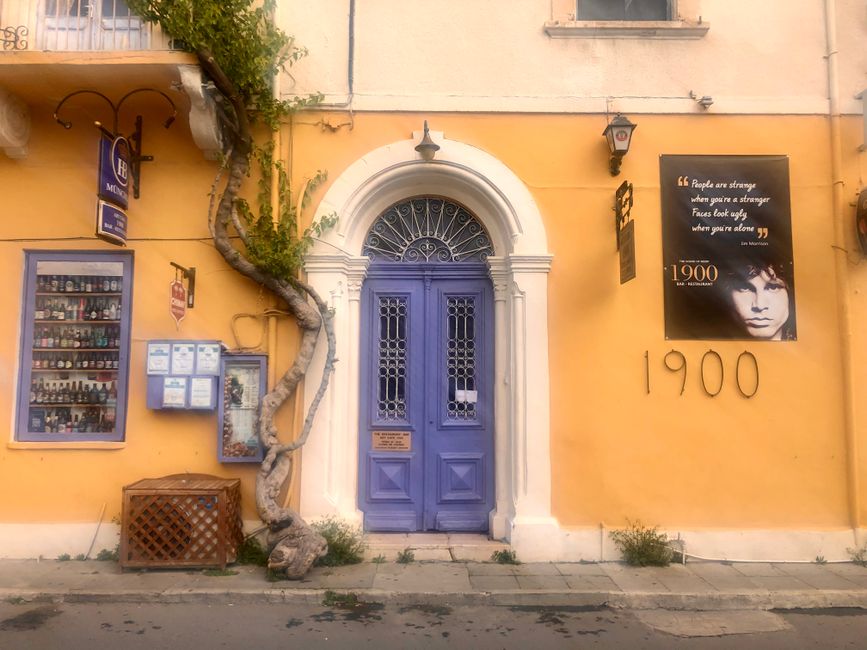
Akụkọ njem Saịprọs

